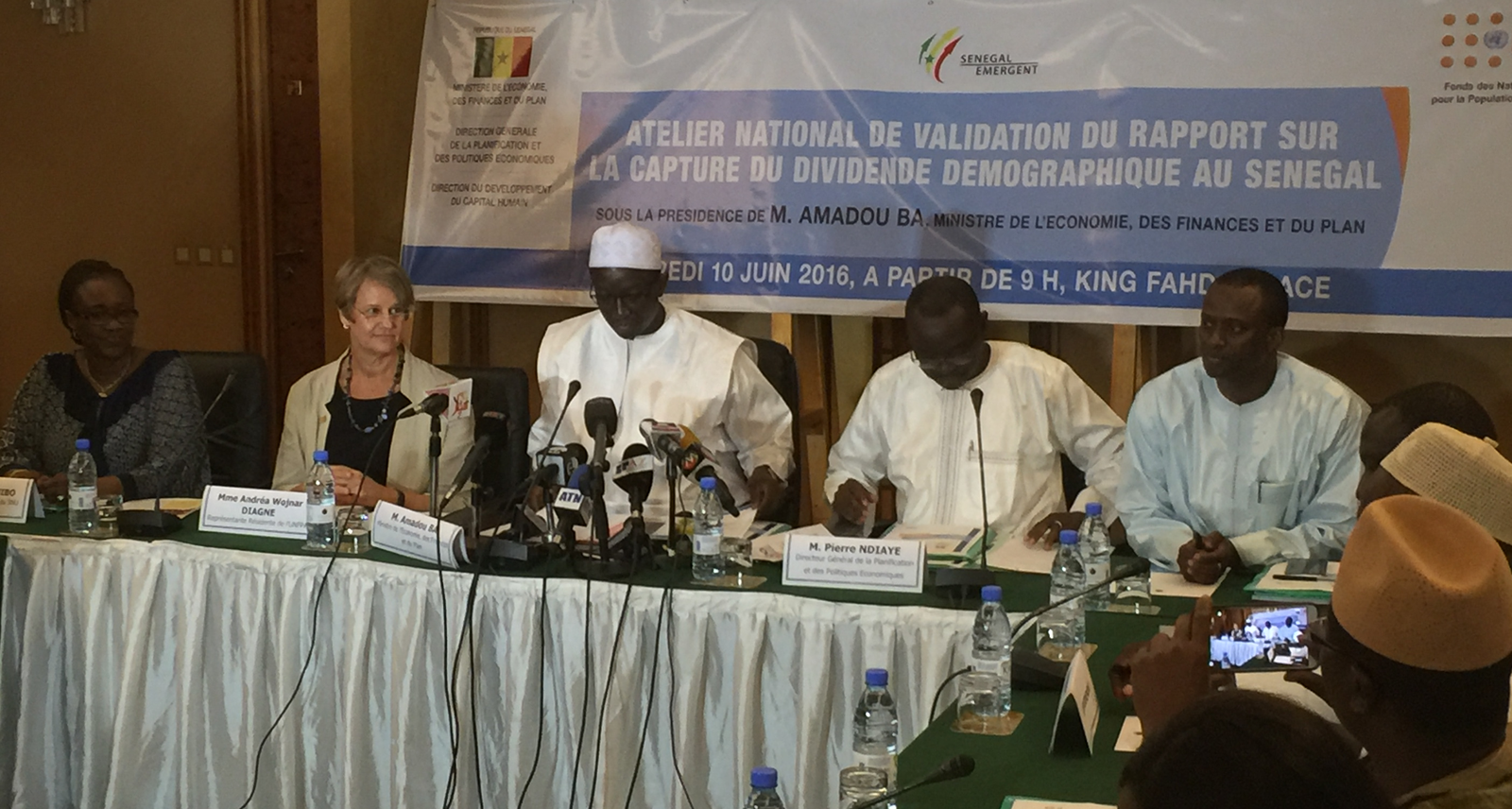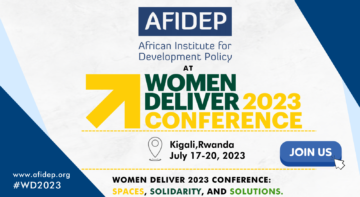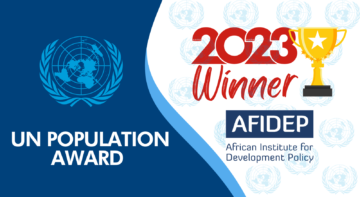News

Senegal’s Minister of Economy, Finance and Planning, Mr Amadou Ba has expressed his country’s commitment to explore the demographic dividend (DD) as an operational framework for achieving the country’s long-term development goals outlined in the vision Plan Sénégal Ãmergent (PSE) 2035.
Speaking at a forum on the demographic dividend convened by the Ministry of Economy, Finance and Planning (MEFP) with support from the United Nations Population Fund (UNFPA), the Minister noted that the demographic dividend offers a practical framework to help the country optimise the value of its youth population to achieve the socio-economic transformation articulated in Vision 2035. He also called on his ministry and other relevant ministers and stakeholders to work towards incorporating the findings of the Senegal DD study in upcoming processes to revise Vision 2035’s next five-year mid-term plan.
Speaking at the same forum, the UNFPA Senegal country representative Andrea Wojnar-Diagne made a firm commitment to continue supporting the DD process in the country.
The demographic dividend is the accelerated economic growth that country can earn when the structure of its population changes from one dominated by dependent children to one dominated by the working-age population. This change is made possible by rapid decline in birth and death rates and reinforced if the population is well educated, healthy and there are ample quality jobs for them.
The forum was held on 10th June 2016 at the King Fahd Palace Hotel in Dakar, and it brought together key government officials from various sectors, non-governmental organisations, development partners, academics, and the media. The forum, was convened to disseminate results of a study, which was commissioned by MEFP to assess Senegal’s opportunities for harnessing a demographic dividend and accelerate the country’s socio-economic development. The study was made possible with financial support from UNFPA and technical leadership from the African Institute for Development Policy (AFIDEP).
When presenting the results of the study and their policy implications, the Director-General of Planning and Economic Policy, Mr Pierre Ndiaye, noted that the study presented a great opportunity for the country to rethink and refine the operationalisation of Vision 2035. He noted that the conclusion from the study, that Senegal can harness a sizeable demographic dividend if the government commits to integrated development that prioritises investments in education, health, job creation, family planning and good governance, was valuable in guiding the country”s journey towards making investments in youth the cornerstone of its development efforts.
Of critical importance is the need for the country to end early child-bearing through keeping girls in school and stopping child marriages, strengthening its voluntary family planning programme, child survival and maternal health programmes. Enhancing the initiatives above can significantly reduce fertility from the current level of five births per woman to ease the high child dependency burden, and open the window of opportunity for Senegal to harness the DD.
The Director-General noted that Senegal should also revamp its economic policies to focus on job creation and spur economic growth. For instance, the government needs to bring down national unemployment rates currently standing at 10.2 percent, but much higher among the youth and women. A majority of the working population is under-employed with about nine out of 10 employed persons working in the informal sector, where they make low and unstable incomes and lack social protection.
Investment in education is also critical for Senegal to harness a demographic dividend. The country has a large youthful population with 76 percent of the population being below 35 years. The youthful population can be a great resource for economic development if the country invests in their education and skills development. Investments are also needed to keep girls in school and eliminate gender inequality. Additionally, of critical importance are education programmes that facilitate adequate levels of transition to secondary school and institutions of higher learning and those that build productive skills of out-of-school youth.
In order for the DD to become a reality in Senegal, the country needs to improve its measures on governance and accountability. This will ensure that investments in all other pillars of the DD are efficiently and effectively used to translate into collective benefit for the country’s population.
In conclusion, the Director-General noted that the next critical step will be for Senegal to develop a national DD roadmap, which will determine the specific game-changer interventions that the country should prioritise in order to harness a maximum DD. Furthermore, the roadmap will define the modalities for ensuring that DD principles are assimilated into various Vision 2035 operationalisation tools and processes, and define systems for coordination or multi-partner activities, monitoring progress and ensuring accountability. He also noted that the roadmap development process will enable the country determine concrete actions that it can undertake to showcase at the upcoming Africa Union Heads of State Summit in 2017 whose theme will be harnessing the demographic dividend through investments in youth.
AFIDEP was represented at the DD Forum and in various meetings related to the DD programme in Senegal by the Executive Director, Dr Eliya Zulu, Dr Bernard Onyango and Dr Ousmane Faye.
Related Posts





